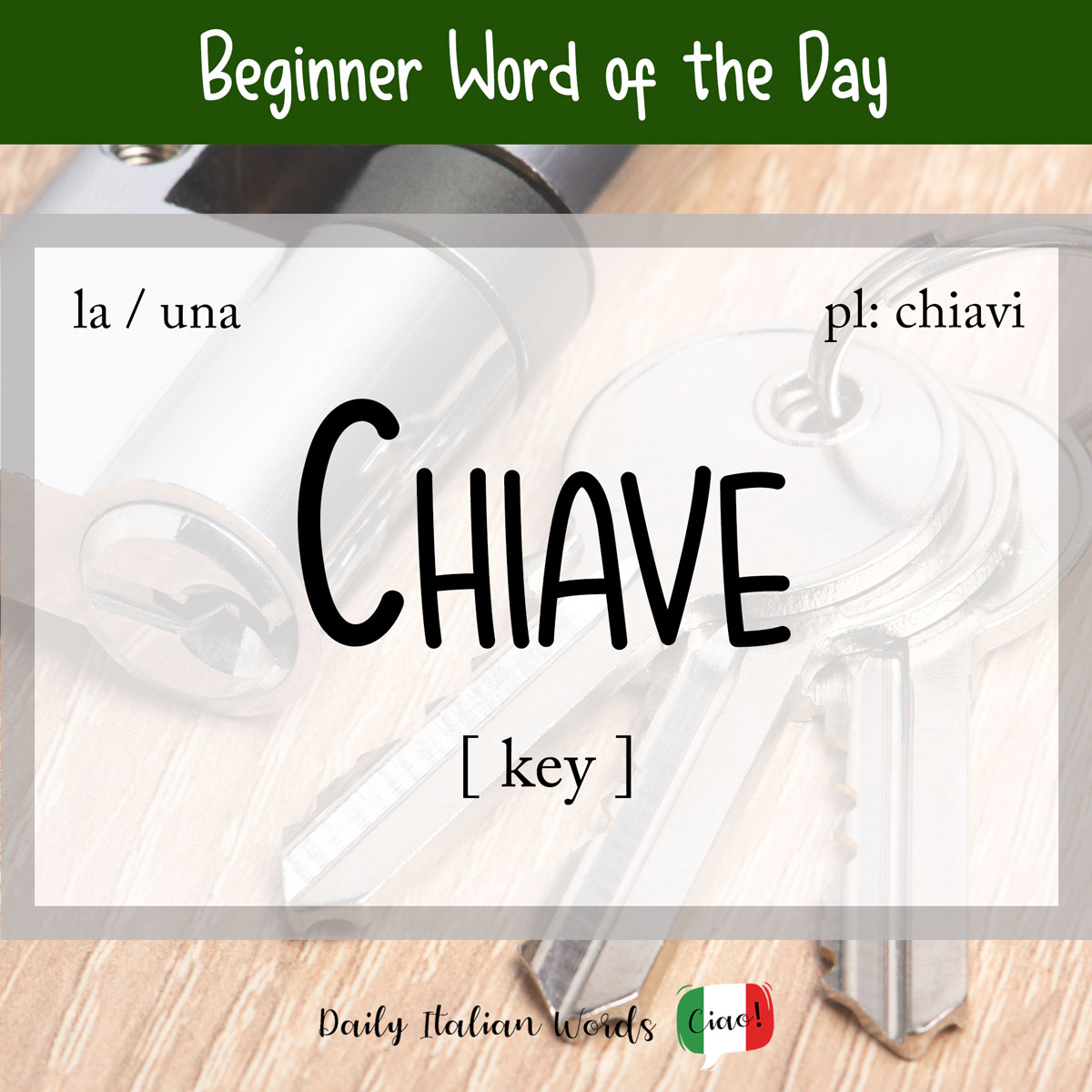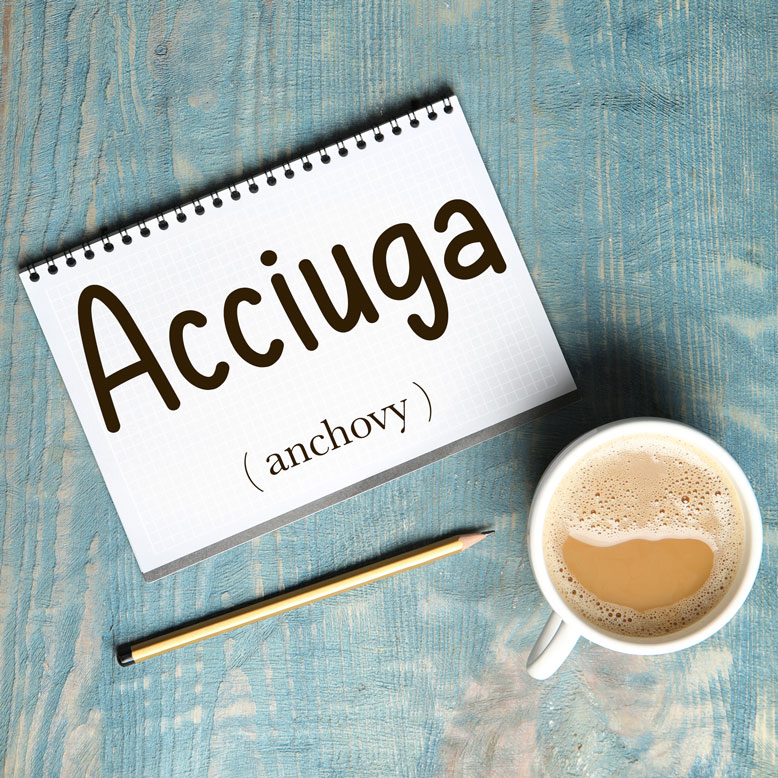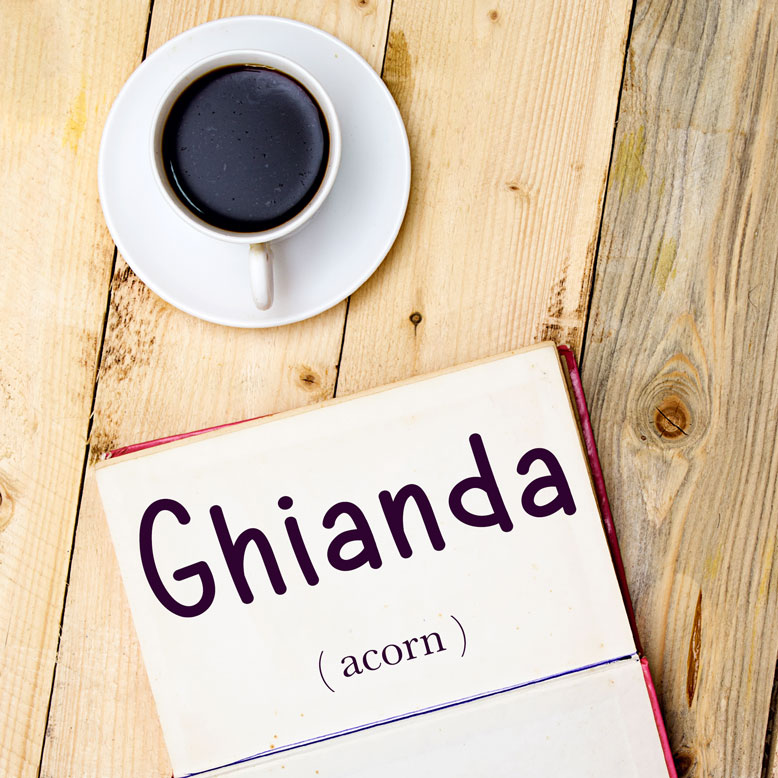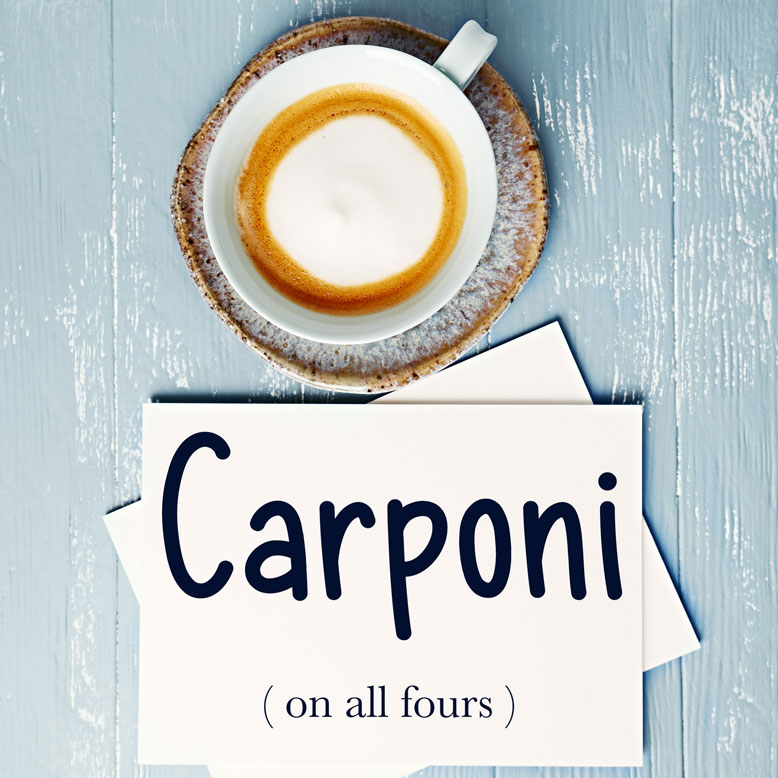Italian Word of the Day: Chiave (key)
Chiave is one of those words in Italian with multiple translations, but let’s begin by looking at the most diffused meaning which is key. Chiave is a feminine noun. The plural is chiavi. la chiaveuna chiave le chiavidelle chiavi Two kinds of keys you definitely don’t want to misplace are le chiavi di casa (house …






